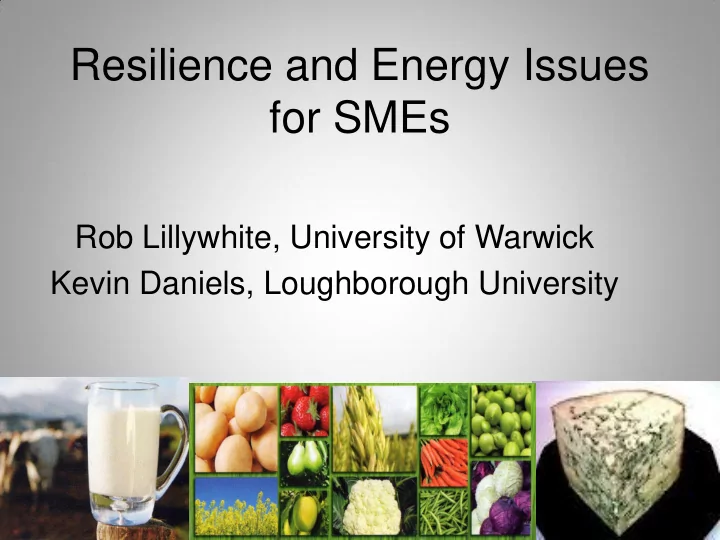

Resilience and Energy Issues for SMEs Rob Lillywhite, University of Warwick Kevin Daniels, Loughborough University
What do SMEs think are the problems? • The cost of energy – to absorb and cut margins or pass on and lose market share? • Energy reduction a priority - not always true for craft producers – product quality and welfare are more important • Reducing energy use is an issue for some retailers • Disruptions to supply are considered a problem by 50% of SMEs • Why no reductions? – lack of confidence in alternatives – cost and payback period (market forces) – physical constraints – unfamiliar with technology • Retailers indicated conflict across the supply chain prevented sharing of information about good practice
What resources should Government provide? • Not just research funding for better technology • Investment – To ensure adequate infrastructure is in place to meet current and future needs – To provide grants and subsidies to allow better uptake of alternative energy sources • Knowledge – To promote energy reduction in SMEs – To facilitate knowledge transfer between big business and SMEs and between SMEs
What are the barriers? Researchers • Technology • Society lifestyle and structure • Cost Consumers • No alternatives • People are too lazy/ not concerned to make reductions • Time and cost to switch to alternatives • Sacrifice - a change in lifestyle • There are too many people
Where are the solutions? • Capital – obtaining financing – calculating long term return on investment • Technology – faster commercialisation of efficient products. • Human factors – changing behaviour – energy dependent lifestyles – raising awareness – increasing relevant knowledge and skills and changing values • Institutional and regulatory structure to encourage collaboration across the supply chain – encouraging, supporting and spreading good practice
Recommend
More recommend